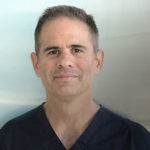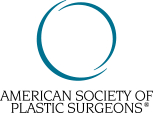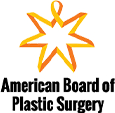
Posted by Laurence Weider on October 5, 2021
The use of cigarettes, nicotine products, and vaping devices poses significant risks for individuals undergoing plastic surgery. While the general health consequences of smoking, such as increased risks of heart disease, lung cancer, and chronic obstructive pulmonary disease (COPD), are widely known, the specific dangers it presents for cosmetic surgery patients are less commonly discussed. This article explores the complications associated with nicotine use in plastic surgery and highlights the importance of abstinence before and after procedures.
How Smoking and Nicotine Affect Plastic Surgery
Unlike many general surgical procedures, cosmetic surgeries often involve the rearrangement and tightening of skin and subcutaneous fat. Procedures such as facelifts, breast reductions, breast lifts, and tummy tucks require the separation of skin and fat from deeper tissues, which reduces the blood supply to these areas. The skin and other tissues must rely on a diminished network of blood vessels to survive during the healing process.
Nicotine constricts blood vessels, further limiting blood flow to the tissues. This can lead to severe complications, including:
- Tissue Necrosis: Death of skin and fat tissue, which is over ten times more common in smokers and nicotine users.
- Infection: Impaired blood flow increases the risk of infection at the surgical site.
- Fat Necrosis: Death of fat cells, resulting in firm lumps.
- Abnormal Scarring: Scars may become thickened or darkly pigmented.
- Blood Clots: Increased risk of potentially fatal blood clots.
- Implant Complications: Breast implants may be more likely to encounter issues.
- Systemic Risks: Smoking heightens the risk of stroke, heart attack, and pneumonia during or after surgery.
- Prolonged Pain: Pain and discomfort may persist longer in smokers than in non-smokers.
The Role of Vaping and Marijuana in Surgery Risks
E-Cigarettes and Vaping
Initially promoted as a safer alternative to traditional cigarettes, e-cigarettes pose their own risks:
- Nicotine Presence: Most vaping liquids contain nicotine, which causes the same blood vessel constriction and healing complications as smoking.
- Toxic Metals: Studies have identified harmful metals such as lead, chromium, nickel, and manganese in the vapors inhaled from e-cigarettes.
Marijuana
The increasing use of marijuana, whether for medical or recreational purposes, introduces additional concerns:
- Smoking Risks: Smoking marijuana significantly raises the risk of stroke, heart attack, and pneumonia, as well as wound healing complications.
- Edible Forms: While oral ingestion of marijuana may pose fewer risks, the composition of edibles is not well-regulated and could contain substances that impair healing.
Policies for Tobacco, Nicotine, and Marijuana Use
To optimize patient outcomes, many plastic surgery practices, including Weider Plastic Surgery, enforce strict policies regarding the use of tobacco, nicotine, and marijuana:
- Patients must abstain from all forms of tobacco, nicotine, e-cigarettes, and marijuana for six weeks before surgery and three weeks after surgery.
- Compliance is confirmed through nicotine testing on the day of surgery.
- Exceptions may be made for procedures that do not involve significant skin rearrangement, such as breast augmentation, at the surgeon’s discretion.
The Path to Better Outcomes
Quitting smoking or nicotine use before surgery not only reduces the risks of complications but can also serve as a first step toward a healthier lifestyle after surgery. Plastic surgery patients who prioritize their overall health often enjoy more successful outcomes and improved long-term well-being.
Conclusion
The risks associated with nicotine and marijuana use during plastic surgery underscore the importance of abstinence before and after procedures. Patients are encouraged to discuss their concerns with their surgeon and explore resources for quitting smoking or nicotine use as part of their surgical preparation.
For more information or to schedule a consultation, contact Weider Plastic Surgery at (972) 566-8444. The team is committed to addressing concerns and ensuring the best possible outcomes for every patient.
Dr. Weider, a native of Southern California, is a Board-Certified Plastic Surgeon who has maintained a private practice in Dallas, TX since 1999. After attending Stanford University, he obtained his medical degree (M.D.) from Baylor College of Medicine in Houston. He then completed a one year surgical internship in Los Angeles at Harbor-UCLA Medical Center, followed by a four year general surgery residency in Dallas at Methodist Medical Center, and a two year plastic surgery fellowship in Cleveland at Case Western Reserve University.







